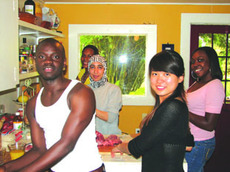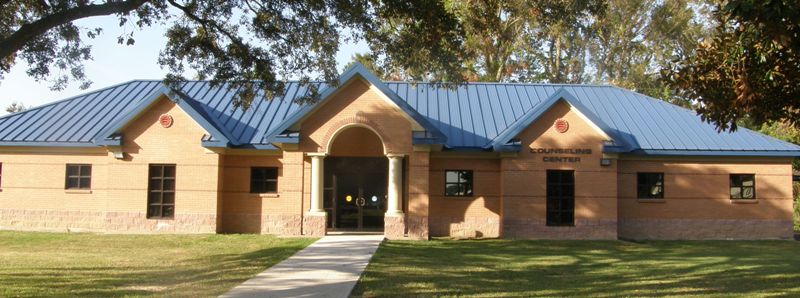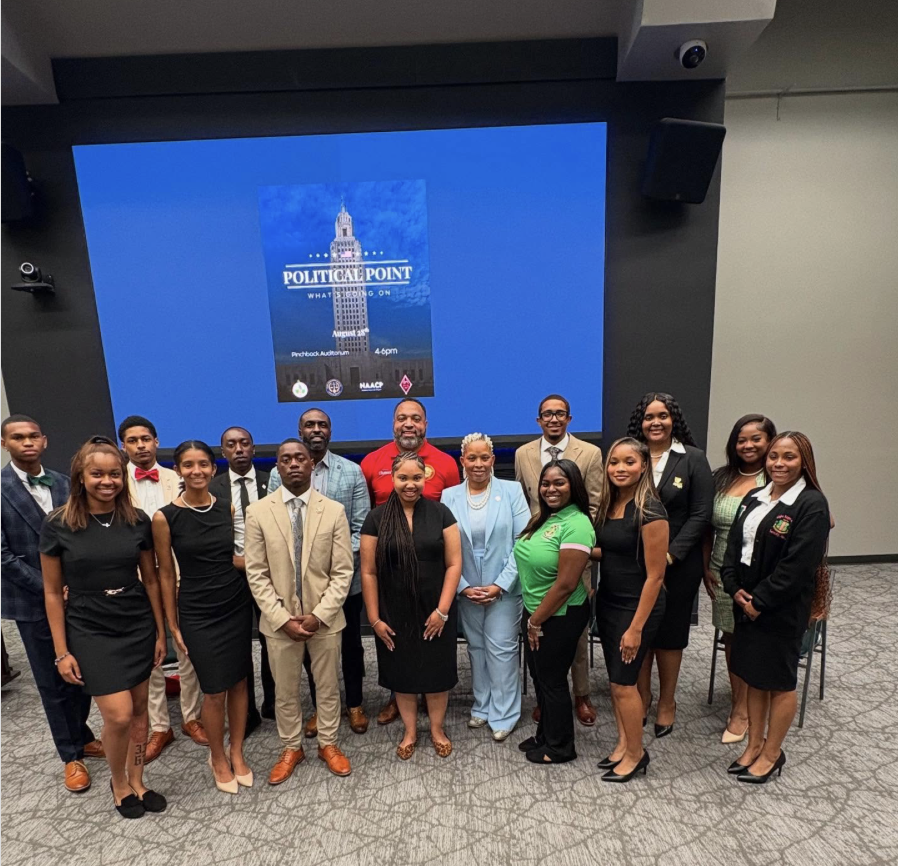The Southern University’s French Club Le Village Francophone held a cultural luncheon and a Lebanese presentation in the foregin language lab in T.T. Allain on Nov. 12.
The French Club members worked together the day before the event to prepare several dishes.
Prior to the presentation, club members served plate lunches that consisted of dishes originating from Lebanon, Morocco and Senegal.
The Lebanese dish, a combination of oils, parsley and sliced tomatoes, was prepared by Zainub Salem, an Arabic teacher. Dr. Fatima Chajai, a French professor, created the Moroccan sample that consisted of sweet carrots.
Abdoulaye Seck, who’s teaching Wolof, prepared two dishes from Senegal. One of the dishes was a mixture of various beans including corn, string beans and peas. The other dish was a blend of rice and meats.
“We wanted to broaden people’s horizon when it comes to French culture,” said Alexis Price, a political science major from Beaumont. “We also wanted to introduce other cultures and look deeper into the Creole culture by discovering where much of the food comes from.”
Price, who is the president of Le Village Francophone, added that the club wanted to expose people to the original recipes.
One of Price’s discoveries throughout the process was the origination of jambalaya. She realized that the rice dish from Senegal is made using the same methods.
While introducing the subject matter and the guest speaker, Salem expressed her views of the country of Lebanon.
“I love Lebanon because of the diverse culture community, the wonderful nature and because my mom’s from Lebanon,” said Salem.
Dr. Riad Yehya, a professor in the SU sociology department, was chosen as the guest speaker.
Born in Lebanon, Yehya delivered a speech about his life in Lebanon and the struggles he faced because of the country’s political situation.
According to Yehya, he left Lebanon in 1980 due to a civil war and received his citizenship to the U.S. five to six years ago.
“I came from a Muslim community,” said Yehya. “I am very proud of my culture.”
According to Yehya, Lebanon has a political system that divides the highest positions according to religion. The president must be a Maronite Christian. However, the prime minister has to be a Sunni Muslim and the speaker of the House must be a Shi’i Muslim.
“We want to give security and a safe feeling to the Christians,” said Yehya in an attempt to explain why a Christian holds the highest position in a country that’s 70 percent Muslim.
Yehya felt that one of his greatest accomplishments in Lebanon was creating an organization that supported women’s education.
“I was opening the door for women’s education,” said Yehya.
Following Yehya’s speech, students and teachers had an open discussion about politics and war ethics, comparing and contrasting situations in the U.S. and Lebanon.
Thomas Miller, a professor of French and German, expressed that the purpose of the presentation was to get students involved in discussion.
“The event was a success because there was an interest among the students that led to discussion,” said Miller after the closing of the event.
Categories:
SU French Club celebrates culture of Lebanon with presentation and luncheon
January 18, 2008

From left- Abdoulaye Seck, Alexis Price, Zainub Salem, Yun Zu, and Brittany Davis pause for a quick photo while preparing dishes for the cultural luncheon.
0
More to Discover





